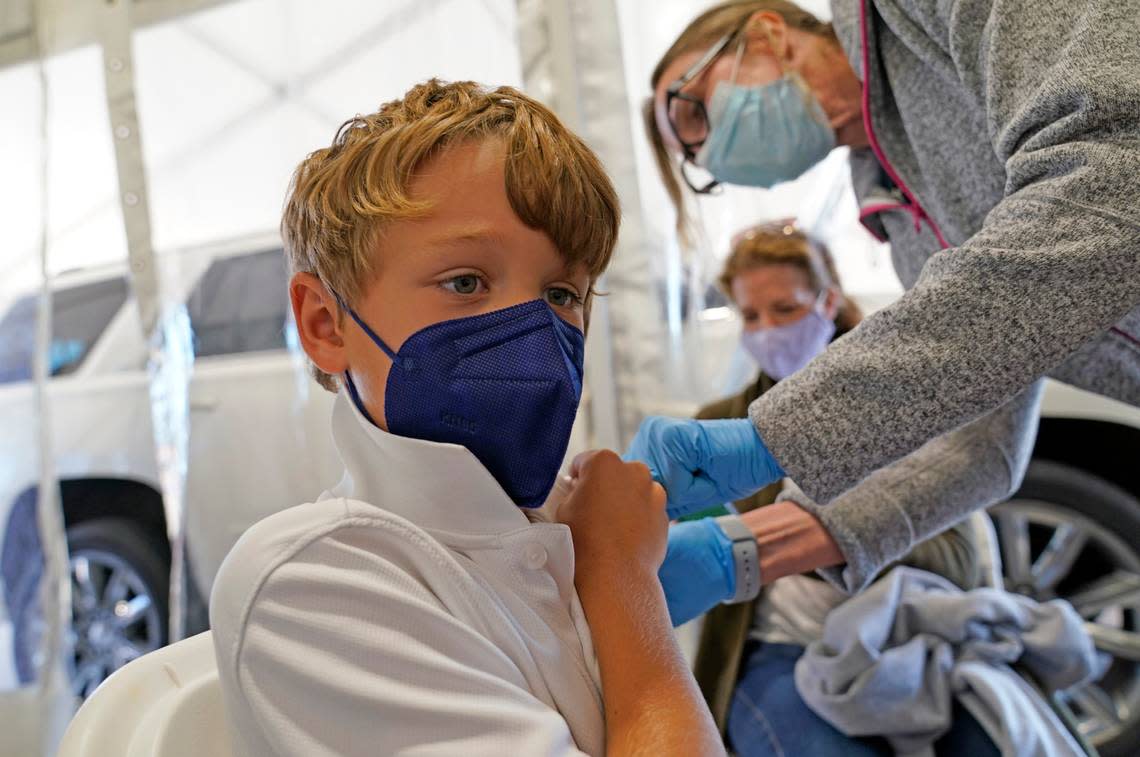Parents, not the CDC or states, know what’s best for kids when it comes to COVID vaccines
When a U.S. Centers for Disease Control and Prevention committee announced last month that COVID-19 vaccines will be added to the recommended shot schedule for children, many parents began bracing for a fight.
While the recommendation did not require that children receive the vaccine, it might as well have. CDC recommendations carry the weight of a federal agency, and many state agencies use them to develop policy.
Indeed, CDC guidance became a convenient scapegoat for state and local leaders (who were hesitant to take responsibility for unpopular policies) throughout the COVID pandemic.
And the schedule change gave states all the credibility they needed to require the vaccine for students to attend public schools.

California didn’t hesitate. Washington, D.C., did not even wait for the CDC’s recommendation. It long-ago mandated the vaccine for public school kids, with mixed compliance.
Thankfully, Gov. Greg Abbott didn’t take the bait. He announced Thursday that “Texas schools shall not require students to receive the COVID-19 vaccine for any reason.”
His decision is welcome, albeit unsurprising; it reaffirms last year’s executive order regarding state vaccine mandates more broadly.
But the clarity is helpful to parents who still felt uncertain.
Abbott deserves praise for his decision, but he isn’t some conservative outlier on the issue of this particular vaccine. Almost two dozen states have done the same.
Even Illinois Gov. J.D. Pritzker, a Democrat, said after his recent re-election that his state currently has no plans to add the COVID vaccine to its required list for students.
And newly re-elected Connecticut Gov. Ned Lamont, also a Democrat, suggested the same during his campaign.
That’s probably at least in part because vaccine uptake among youth has been slow.
Public health officials tend to blame that on “vaccine hesitancy” or “misinformation” about the potential side effects of the COVID shot.
It’s true that plenty of parents who gladly got the jab themselves have been hesitant to do the same for their children.
However, their decisions aren’t arbitrary.
There is precious little data — certainly nothing about long-term efficacy — to justify children (particularly the very young) to get the shots.
Data from other countries, such as Finland and Sweden, which don’t recommend COVID vaccines for children except in cases of severe comorbidities, suggests that in some cases, the risks may even outweigh the benefits.
For many parents, though, the issue isn’t even about safety, it’s about necessity.
We’ve known (although not always acknowledged) for more than two years, that COVID is a very mild disease in otherwise healthy children.
Many children are asymptomatic; and many would not have known they had contracted the disease had the testing regimens been less stringent.
We know, most importantly, that the vaccines do not prevent transmission. Just ask CDC Director Rochelle Walensky, who tested positive for COVID (twice!) just a month after her booster.
While the argument in favor of vaccines has been that they reduce disease severity, that simply has not been a concern for the vast majority of children.
Right now, other respiratory diseases, such as RSV, which have surged again this fall, are of far bigger concern to most parents. (And don’t even get me started on the stomach bug that’s going around.)
Despite the criticisms that too many people are falling victim to vaccine misinformation, parents generally know how to balance risk and benefit when it comes to their kids.
They should be allowed to make those decisions on their own.
It’s nice to live in a state where elected leaders think so, too.
